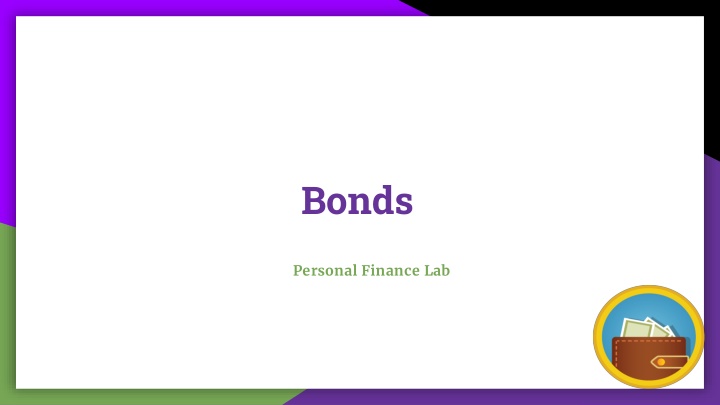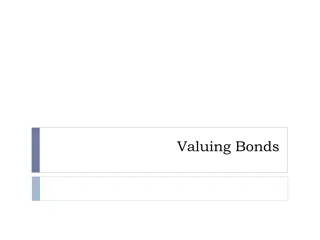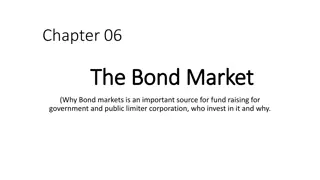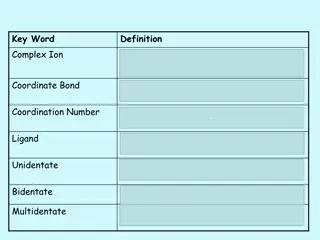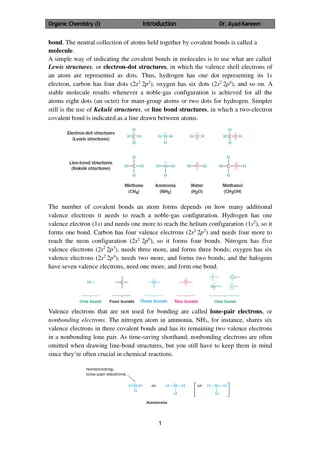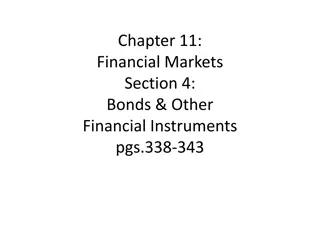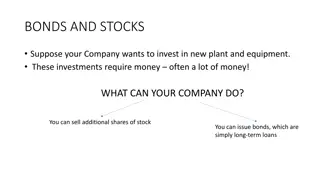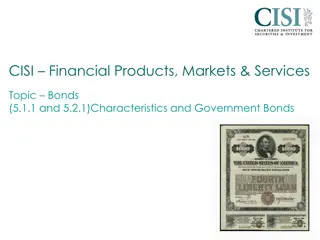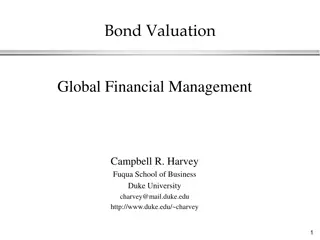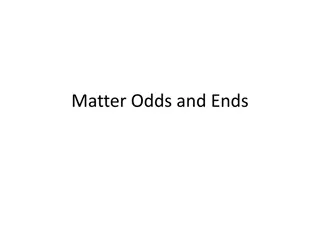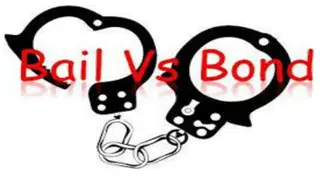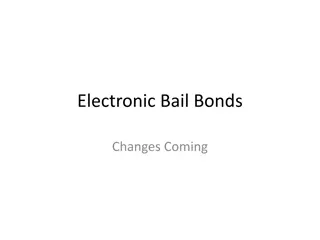Bonds: Definition, Types, and Vocab
A bond represents borrowed funds for a project, with a promise of repayment with interest. Learn about government and corporate bonds, bond vocab like face value and yield, and the importance of bonds in a balanced portfolio.
Download Presentation

Please find below an Image/Link to download the presentation.
The content on the website is provided AS IS for your information and personal use only. It may not be sold, licensed, or shared on other websites without obtaining consent from the author.If you encounter any issues during the download, it is possible that the publisher has removed the file from their server.
You are allowed to download the files provided on this website for personal or commercial use, subject to the condition that they are used lawfully. All files are the property of their respective owners.
The content on the website is provided AS IS for your information and personal use only. It may not be sold, licensed, or shared on other websites without obtaining consent from the author.
E N D
Presentation Transcript
Bonds Personal Finance Lab
Bonds 101 What? A bond is when a company basically has an I owe you in order to fund a project. When you buy the bond in return to interest over a given period of time you get your money back. The issuer, or company, get the money that you have them to fund their project. Bonds have an expiration date and that is when the buyer gets their money back. This date is known as their maturity date. Bonds can be traded and sold just like stocks can be traded but, buying a bond is usually less risky than buying a stock.
Types of Bonds Government Bonds It can be raised by any level of government; large cities often issue bonds to fund public projects, while national governments issue bonds to fund the government. Government bonds can be traded by normal investors, but they can also be bought and sold between countries. For example, the US might owe China money because the US sold bonds to China to fund a project such as building infrastructure. Corporate Bonds Corporations can also sell bonds, which is essentially borrowing money from a large pool of investors. Bigger companies issue bonds because they can t get enough funding from bank loans.
Bond Vocab Face Value The face value, also known as par value or principal is the amount of money you will receive when the bond matures. It is usually $1,000. Coupon This is the amount of interest you receive on your bond every year. It is usually stated in terms of the coupon rate (in percent). You then multiply your coupon rate by your face value. Maturity The maturity date is when the bond expires. If you are holding the bond on the maturity date then the bond Issuer will pay you the face value of the bond, which is almost always different from what you initially paid for it. Yield Since bonds are bought and sold between investors just like stocks, the value that they are bought and sold for on the market may not be exactly the same as the interest payments left until the bond expires and the face value.
Bond Vocab Accrued Interest The interest payments on bonds are not paid daily; they are usually paid out once or twice a year (depending on the bond). However, the bond issuer owes whoever holds the bond interest for as long as they held it; if you only own a bond for a day, you are still entitled to one day of interest. Rating A rating is given to bonds to determine their level of riskiness. AAA: Strongest Quality Rating, this has a very very low risk of default. AA+ to AA-:Very high quality investment Grade. A+ to BBB-:Medium quality investment grade. BB+ to BB-, CCC+ to C: and D Portfolio All balanced portfolios should have a spot for bonds. Some bonds are riskier so it is important to have a mix of investment types in your portfolio.
